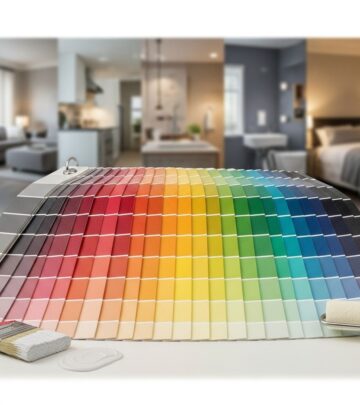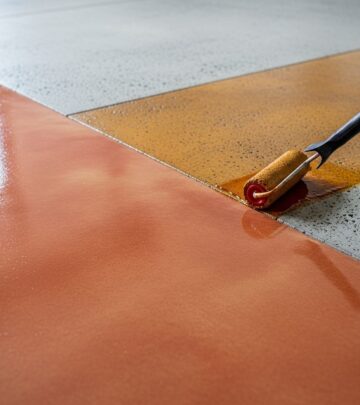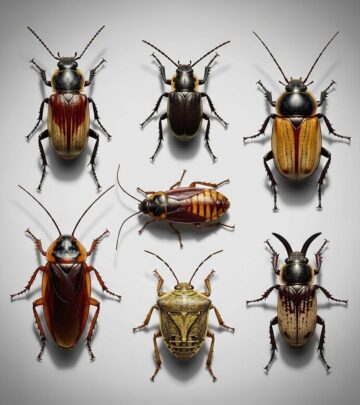Natural Mouse Repellent: 15 Scents To Keep Mice Away
Discover powerful aromas that keep unwanted guests away without harmful chemicals.

Image: HearthJunction Design Team
15 Scents That Naturally Repel Mice From Your Home
Mice are persistent household pests that can quickly turn into a bigger problem if left unchecked. While snap traps and rodenticides are common solutions, many homeowners seek more humane or chemical-free remedies to keep mice away. Fortunately, nature offers a powerful weapon in the battle against rodents: smell. With their acute sense of smell, mice can be powerfully repelled by certain strong odors. Here’s a comprehensive guide to 15 scents that mice dislike and how you can use them effectively to maintain a rodent-free home.
Why Do Mice Hate Certain Smells?
Mice rely heavily on their sense of smell to find food and navigate their environment. Strong, irritating, or unfamiliar scents disrupt their communication and behavior, making an area less attractive or even intolerable to them. By introducing these scents in strategic locations, you can create a natural and safe deterrent for mice, often using items you already have in your pantry or cleaning cabinet.
15 Scents That Keep Mice Away
- Cinnamon
- Vinegar
- Peppermint Oil
- Cloves and Clove Oil
- Ammonia
- Bleach
- Citronella
- Mothballs
- Dryer Sheets
- Chili Oil or Powder
- Lavender
- Used Tea Bags
- Mint Plants & Toothpaste
- Eucalyptus Oil
- Lemon and Citrus Scents
1. Cinnamon
This spicy, fragrant staple is more than just a baking essential—it’s a proven rodent deterrent. Mice cannot tolerate the intense aroma of cinnamon. Sprinkle ground cinnamon, place cinnamon sticks, or use cinnamon essential oil on cotton balls in corners, behind appliances, along baseboards, or anywhere mice activity is suspected.
2. Vinegar
White vinegar’s pungent and acidic aroma is highly unpleasant to mice. Clean countertops, floors, and suspected entry points with a water-vinegar mix for lasting effect. Cotton balls soaked in vinegar and placed in strategic locations act as a simple barrier against rodent invaders.
3. Peppermint Oil
Peppermint oil is perhaps the most well-known and effective natural mouse repellent. Its sharp menthol scent overwhelms a rodent’s senses. Add a few drops of pure peppermint oil to cotton balls and place them near suspected entryways, behind cabinets, and under sinks. For extra power, plant peppermint or spearmint around your home’s exterior.
4. Cloves and Clove Oil
The strong scent of cloves, whether whole or as an oil, acts as a natural rodent deterrent. Scatter whole cloves in problem areas or soak cotton balls in clove oil. Both options will repel mice and add a pleasant aroma to your home for humans at the same time.
5. Ammonia
Ammonia’s acrid smell is often compared to urine, signaling danger to mice and encouraging them to stay away. Mix one part ammonia with ten parts water in a spray bottle and apply it around entry points, garages, and basements. Safety tip: Avoid using ammonia in areas accessible to children or pets due to its strong and potentially irritant nature.
6. Bleach
Bleach is a familiar cleaning product with a harsh odor that’s effective at deterring mice. Wipe down floors and surfaces with a diluted bleach solution or set out rags lightly soaked in bleach where mice have been spotted (again, only in pet-free and child-free zones).
7. Citronella
Known for its insect-repelling power, citronella is equally disliked by mice. Use citronella candles, sprays, or oil diffusers to keep mice at bay while also enjoying the fresh scent it brings to your living spaces. Burning citronella incense near entry points can offer an extra layer of protection.
8. Mothballs
Mothballs contain naphthalene, a chemical with a pungent odor that repels rodents. Place mothballs in attics, crawl spaces, or under cabinets—just remember they are toxic, so use them only in areas inaccessible to kids and pets.
9. Dryer Sheets
The fresh scent of dryer sheets is pleasant to us, but can be irritating for mice. Stuff dryer sheets in small cracks, holes, or behind furniture to discourage rodents from making themselves at home.
10. Chili Oil or Powder
Mice are sensitive to spicy, hot scents. Sprinkle chili powder or make a chili oil spray to treat areas where mice might sneak in. Be careful to avoid leaving chili powder where it might bother household pets.
11. Lavender
Lavender oil, sachets, or dried flowers are a gentle-smelling deterrent for us, but highly disagreeable for rodents. Place lavender sachets or spray diluted lavender oil around high-risk areas to repel both mice and add a calming scent to the room.
12. Used Tea Bags
Don’t toss out your peppermint or herbal tea bags after brewing. The residual scent can deter mice—simply let them dry and place them where you’ve seen activity.
13. Mint Plants & Toothpaste
In addition to peppermint oil, growing fresh mint or placing mint toothpaste in entry points can provide a barrier mice won’t want to cross. Plant mint outside near foundations or rub mint toothpaste on baseboards and corners.
14. Eucalyptus Oil
Much like peppermint, eucalyptus oil is highly effective. A few drops on cotton balls placed wherever you suspect mouse traffic can disrupt their patterns and send them elsewhere.
15. Lemon and Citrus Scents
Mice prefer dark, musty places—bright citrus scents from lemon peels, essential oils, or cleaners can freshen up and repel rodents. Place citrus peels in corners or use lemon-scented sprays for dual action cleaning and rodent defense.
How to Use Scents to Repel Mice Effectively
- Clean thoroughly before applying any scent-based repellents to remove food residue and existing rodent traces.
- Apply scents regularly: Oils and powders need to be refreshed every few days for continued effectiveness.
- Target entry points: Focus on cracks, gaps, under doors, and along baseboards where mice are most likely to enter.
- Combine scents: Layering scents (like peppermint and vinegar) can maximize deterrence and cover larger areas.
Expert Tips for Preventing Mouse Infestations
- Seal all holes, cracks, and crevices with steel wool or caulk to physically block entry.
- Store all food in airtight containers and promptly clean up crumbs and spills.
- Remove clutter, especially cardboard and paper that rodents love for nesting.
- Keep garbage lids tightly closed, and empty bins regularly.
- Trim vegetation and keep the area around your home’s foundation clear.
Common Mistakes to Avoid
- Relying on scents alone without cleaning or sealing up entry points.
- Using toxic repellents (like mothballs or ammonia) in areas accessible to children and pets.
- Failing to refresh natural deterrents like oils or powders regularly.
Comparing Natural Scents for Mouse Repellency
| Scent | Effectiveness | Safe for Pets? | Additional Benefits |
|---|---|---|---|
| Peppermint Oil | High | Yes (when properly applied) | Fresh scent, insect repellent |
| Cinnamon | Moderate | Yes | Spicy aroma |
| Vinegar | High | Yes | Cleans surfaces |
| Mothballs | High | No | Long-lasting odor |
| Ammonia | High | No | Disinfectant |
| Citrus Peels | Moderate | Yes | Fresh scent, biodegradable |
Frequently Asked Questions (FAQs)
Are scent-based repellents enough to get rid of mice completely?
No single scent will eradicate a serious infestation. Scents are best used as part of a holistic approach that includes cleaning, sealing entry points, and removing attractants. For ongoing issues, contact a pest control professional.
Is peppermint oil harmful to pets or children?
Peppermint oil is safe when used judiciously. Avoid direct skin contact or ingestion, and never apply oils where kids or pets might lick or chew on treated items.
How often should I reapply natural repellents like oils or powders?
Essential oils and powders should be refreshed every 2-4 days for maximum effectiveness. Environmental factors like temperature and airflow may require more frequent application.
Do mice get used to these smells over time?
Rodents can adapt to certain scents if they are not strong or constant enough. Rotate between different repellents and ensure they are reapplied regularly.
Can I use more than one scent at a time?
Absolutely! Layering different scents can increase the overall deterrent effect and broaden the coverage around your home.
Final Thoughts
Natural scents offer a safe, affordable, and effective way to keep mice at bay without using harsh chemicals or dangerous traps. By understanding and leveraging what rodents hate, homeowners can create an unattractive environment for these pests and avoid future infestations. Combine these scented solutions with good hygiene and regular maintenance for the best long-term results.
References
- https://www.thespruce.com/smells-that-mice-hate-8716926
- https://www.medicinenet.com/what_scent_will_keep_mice_away/article.htm
- https://www.eliminatesolutions.co.uk/what-smells-do-mice-hate/
- https://www.terminix.com/blog/home-garden/smells-mice-hate/
- https://www.pestdefence.co.uk/news/what-scent-will-keep-mice-away/
Read full bio of Anjali Sayee










